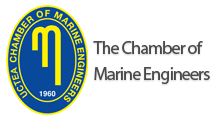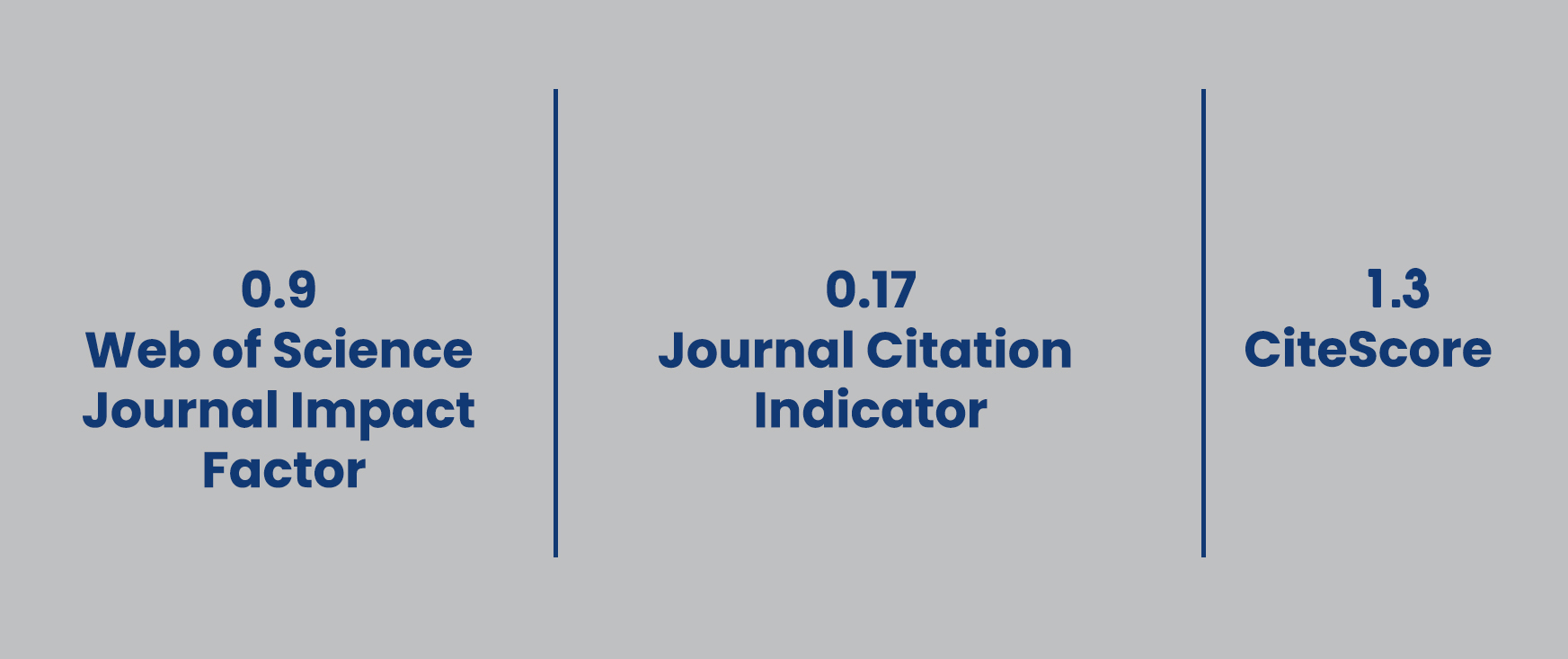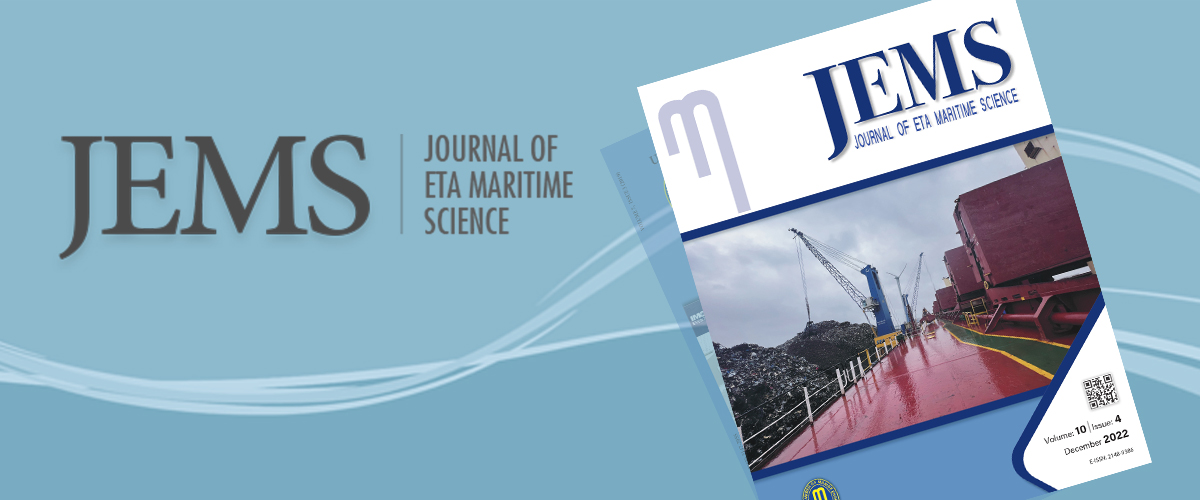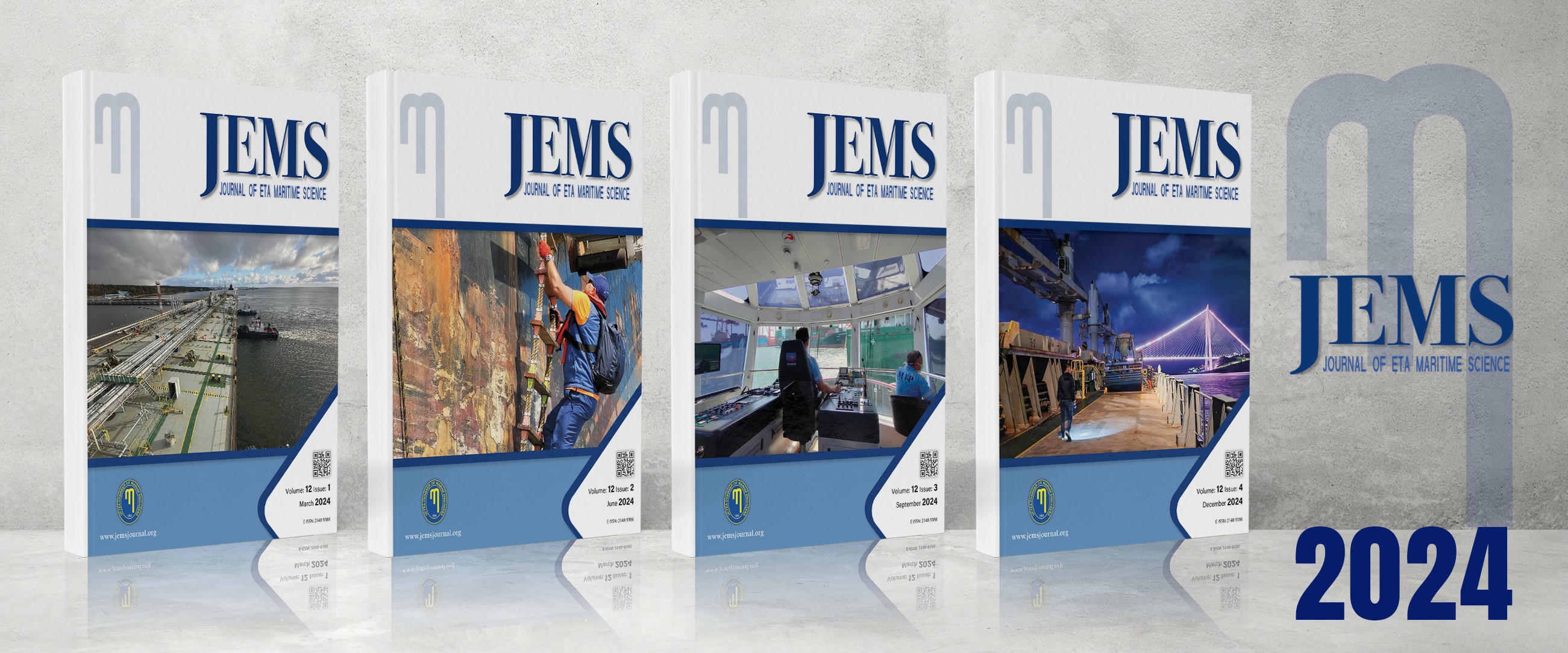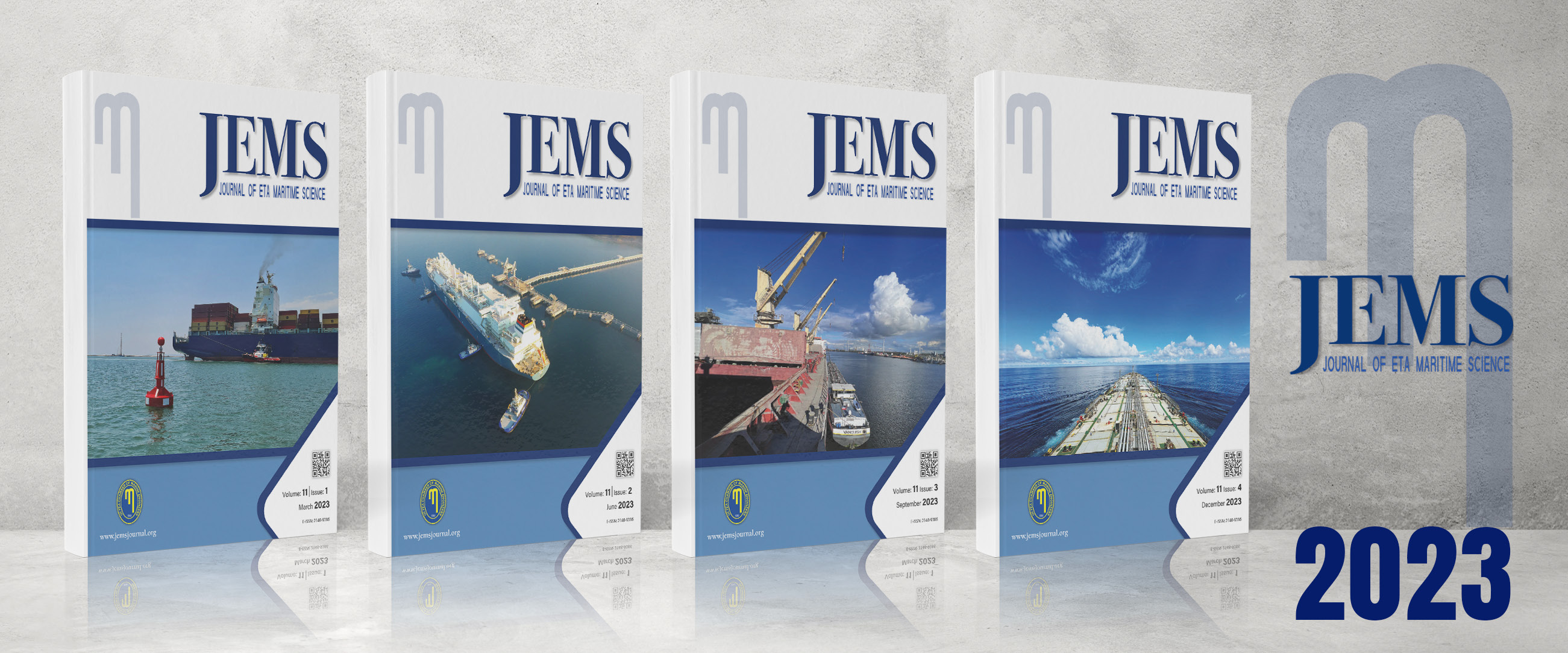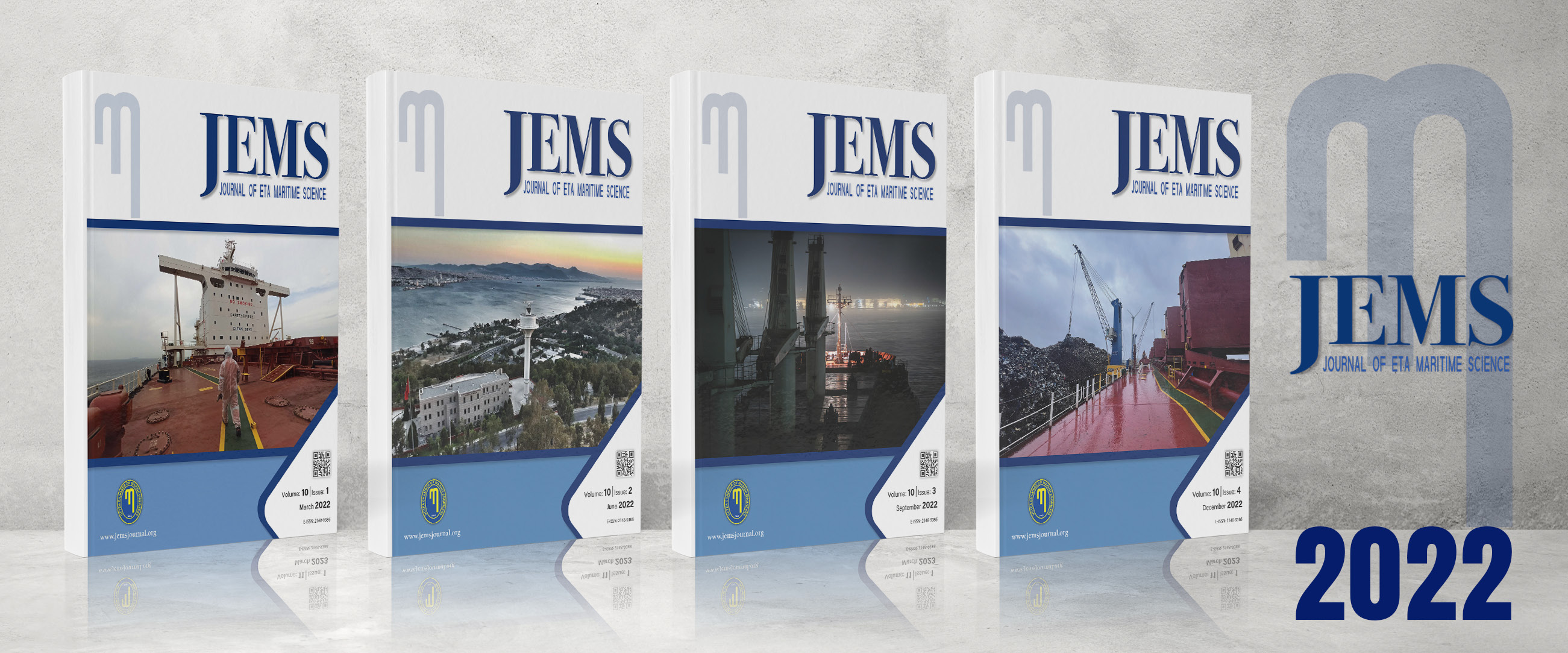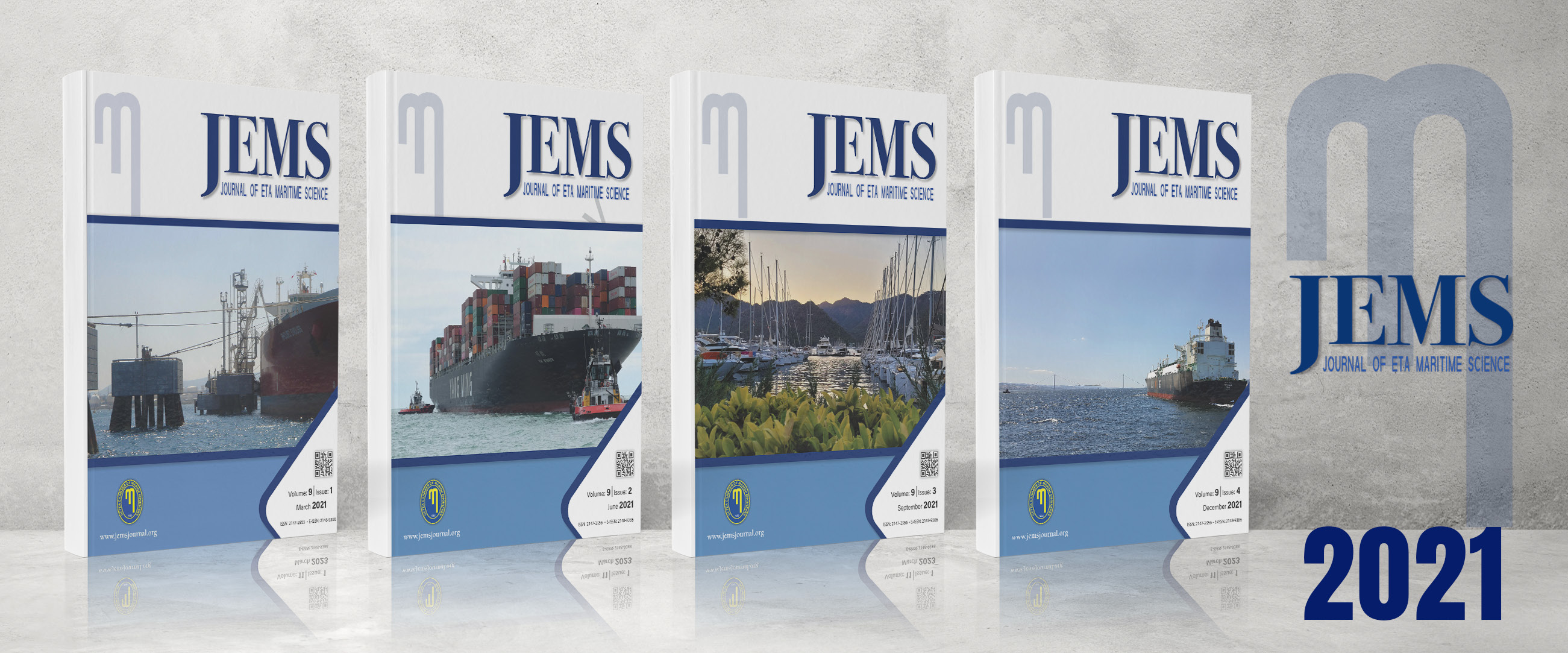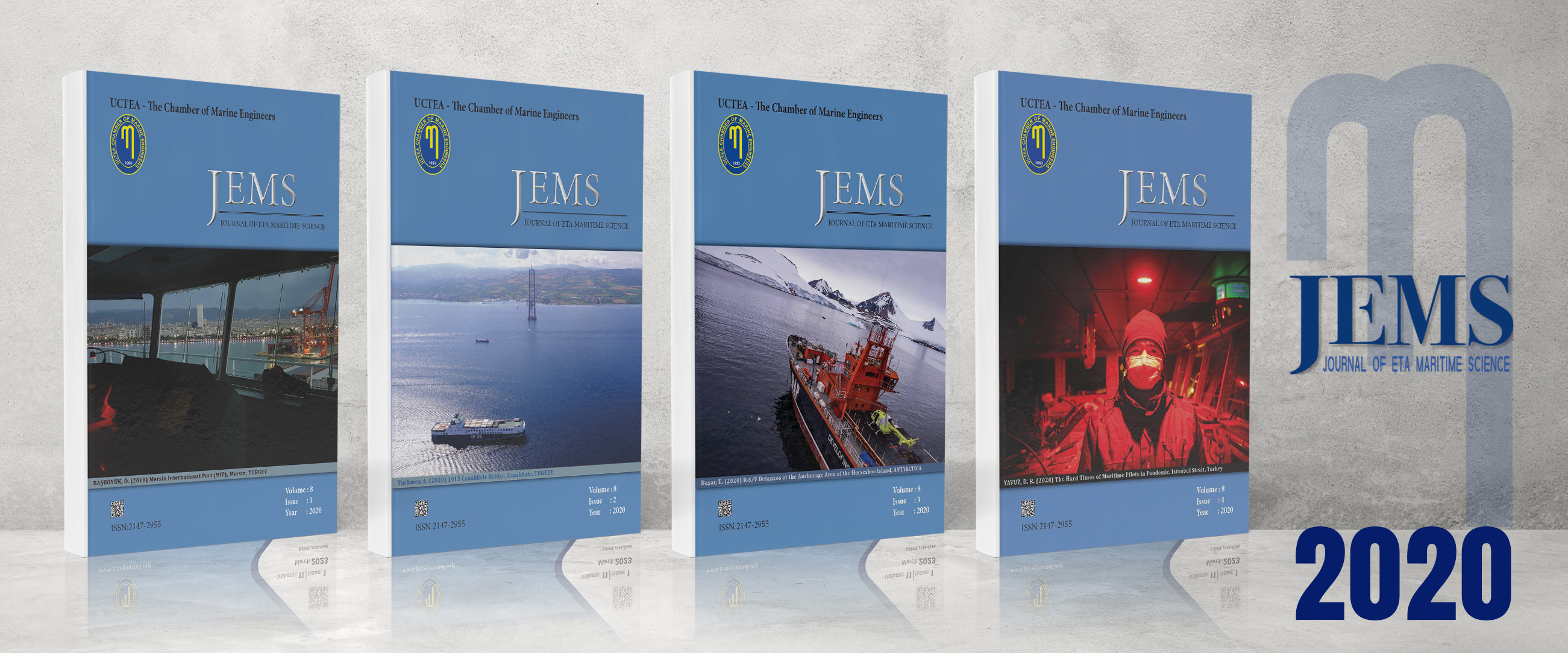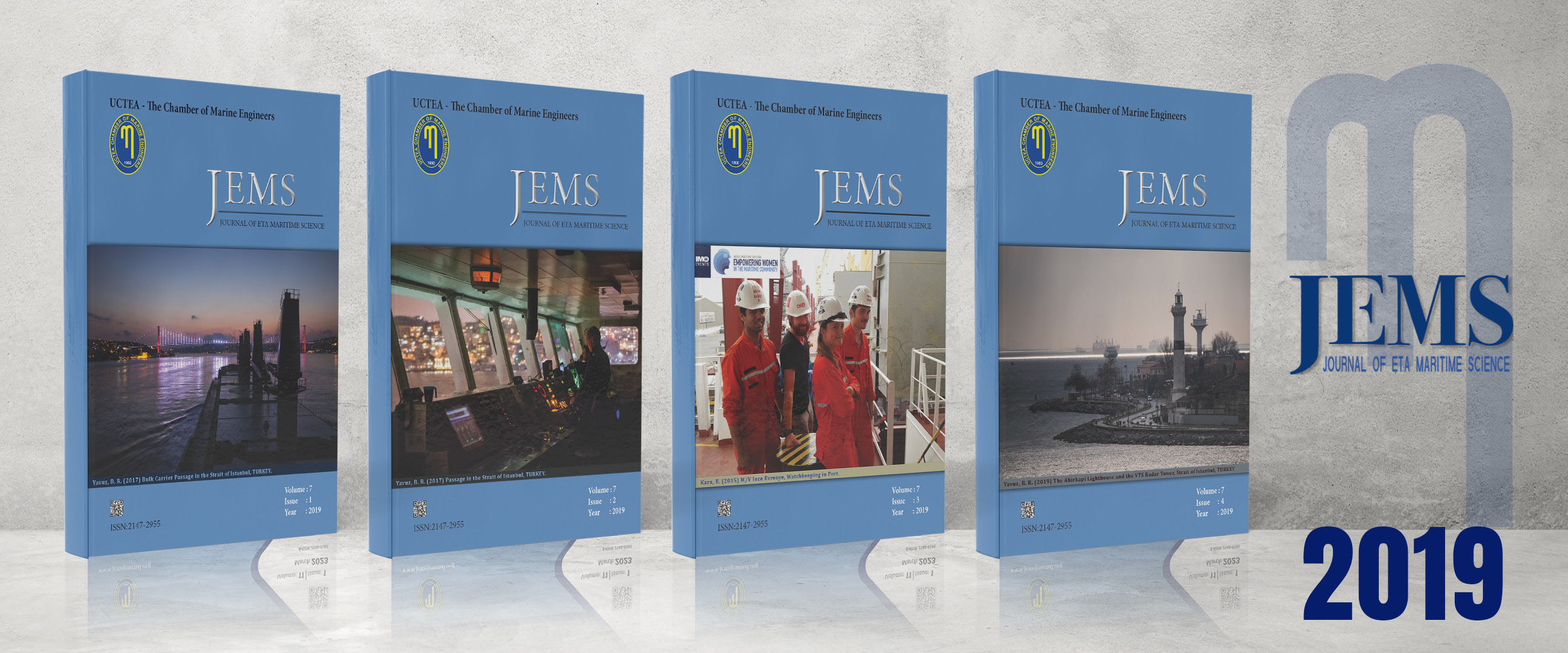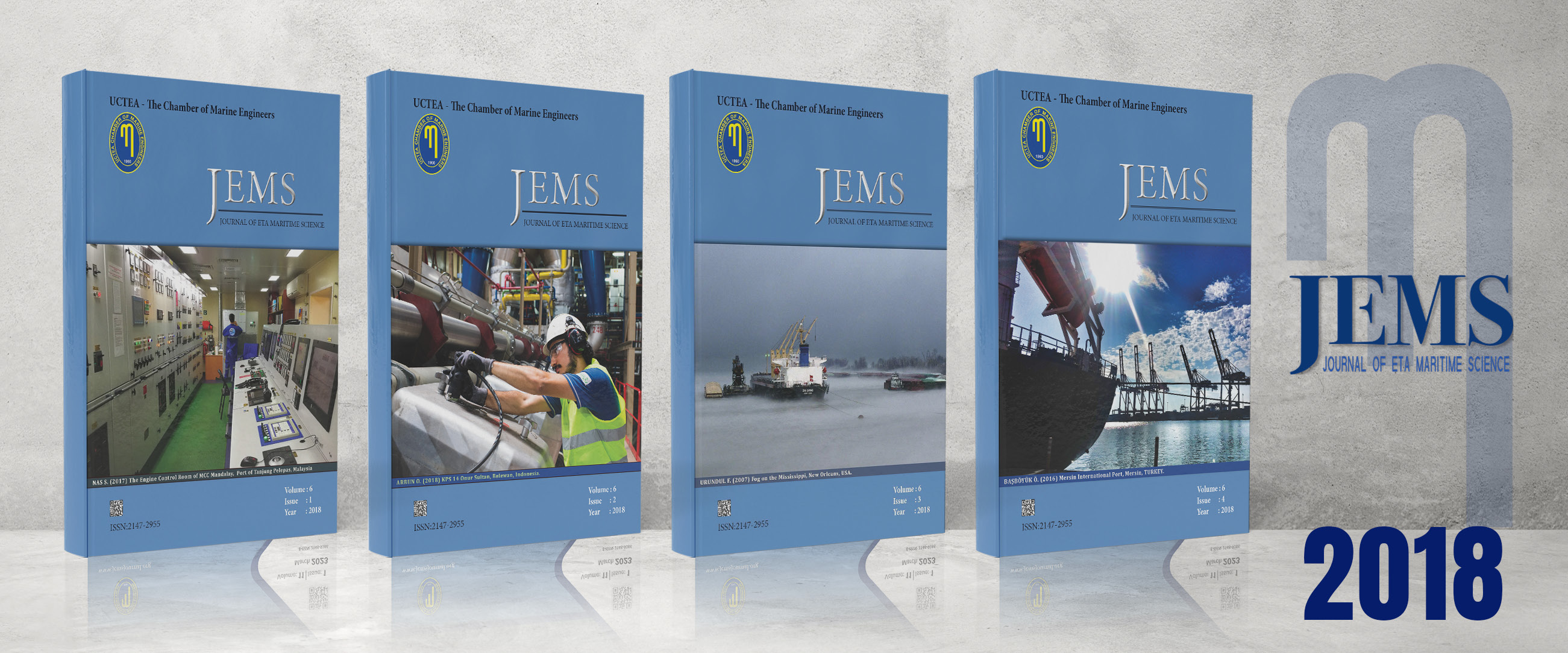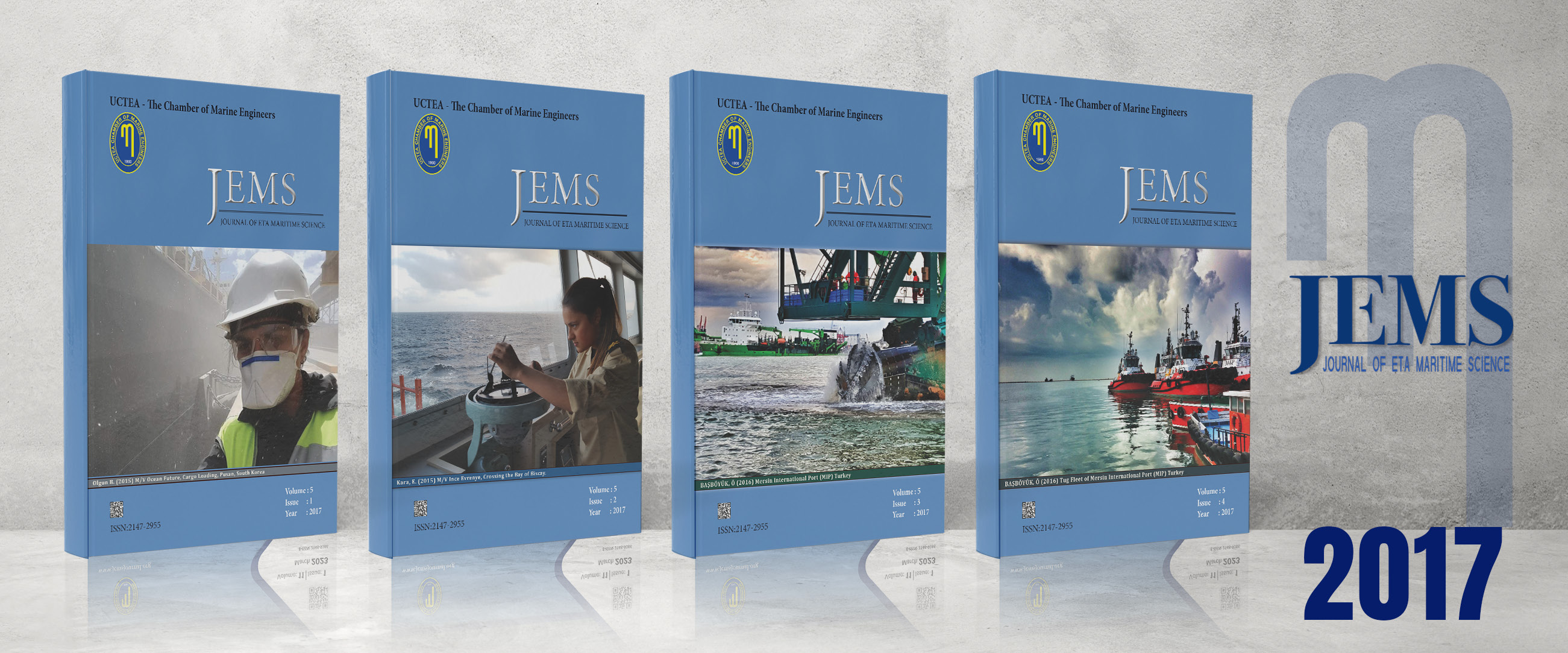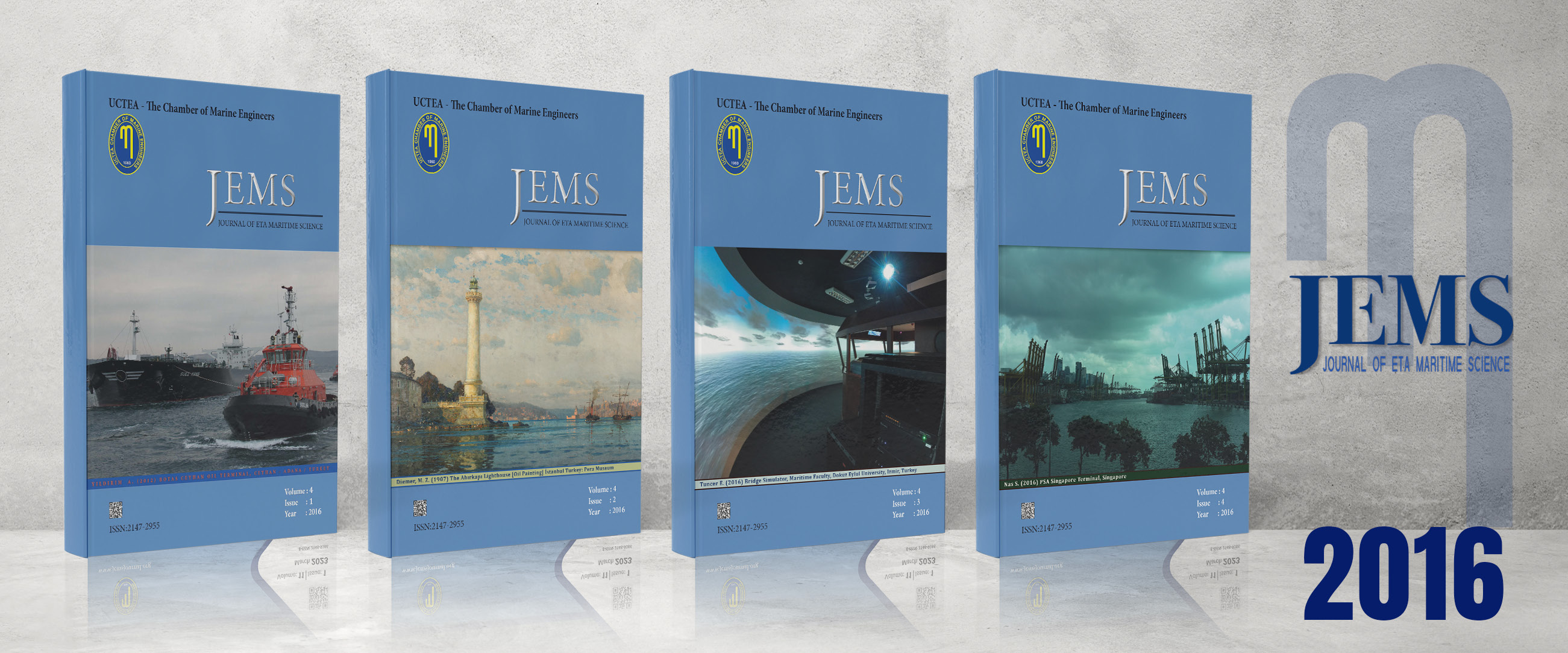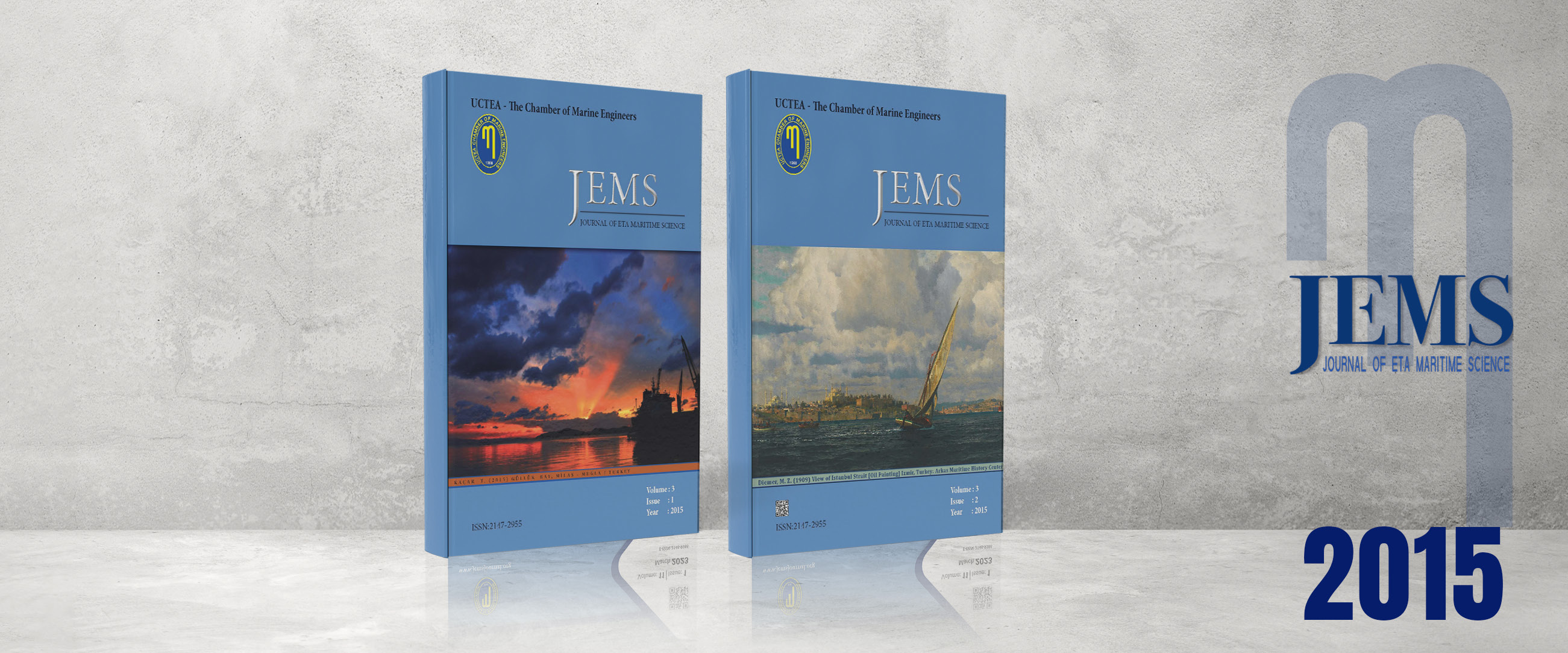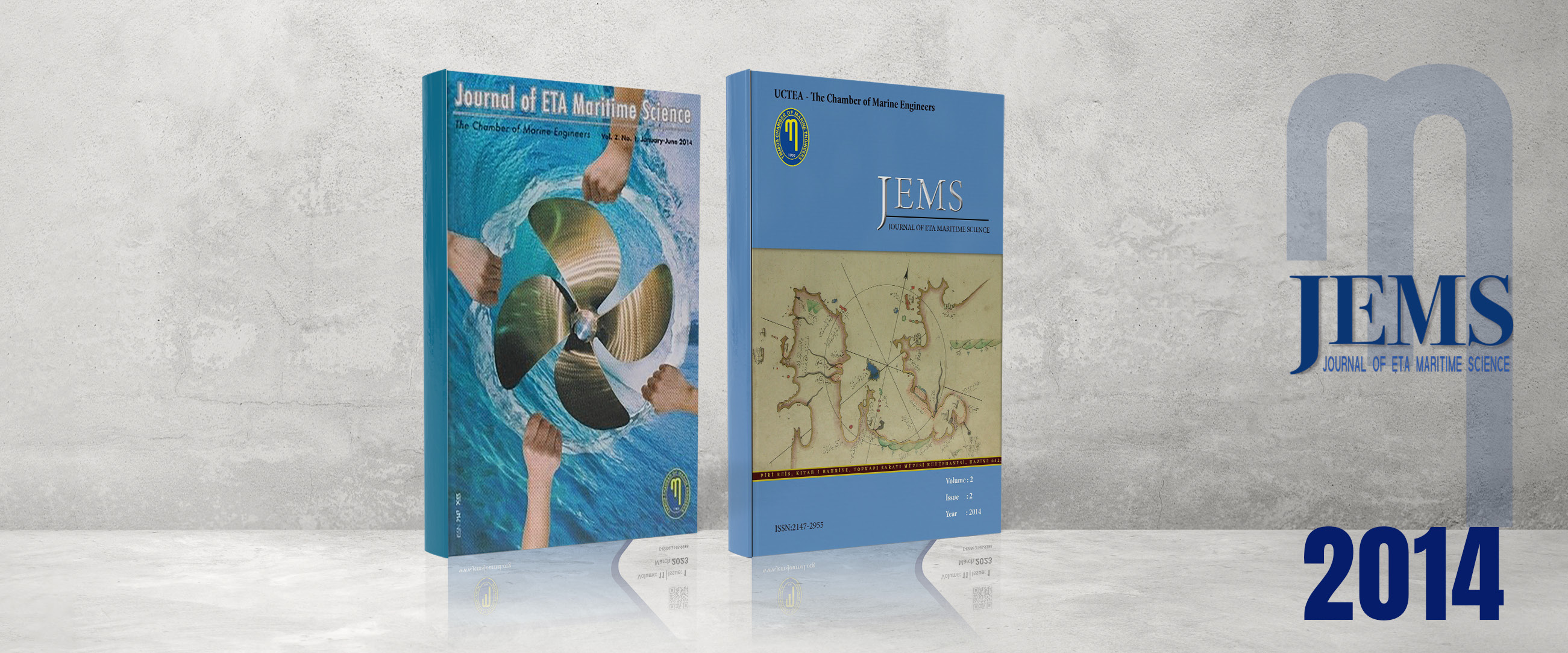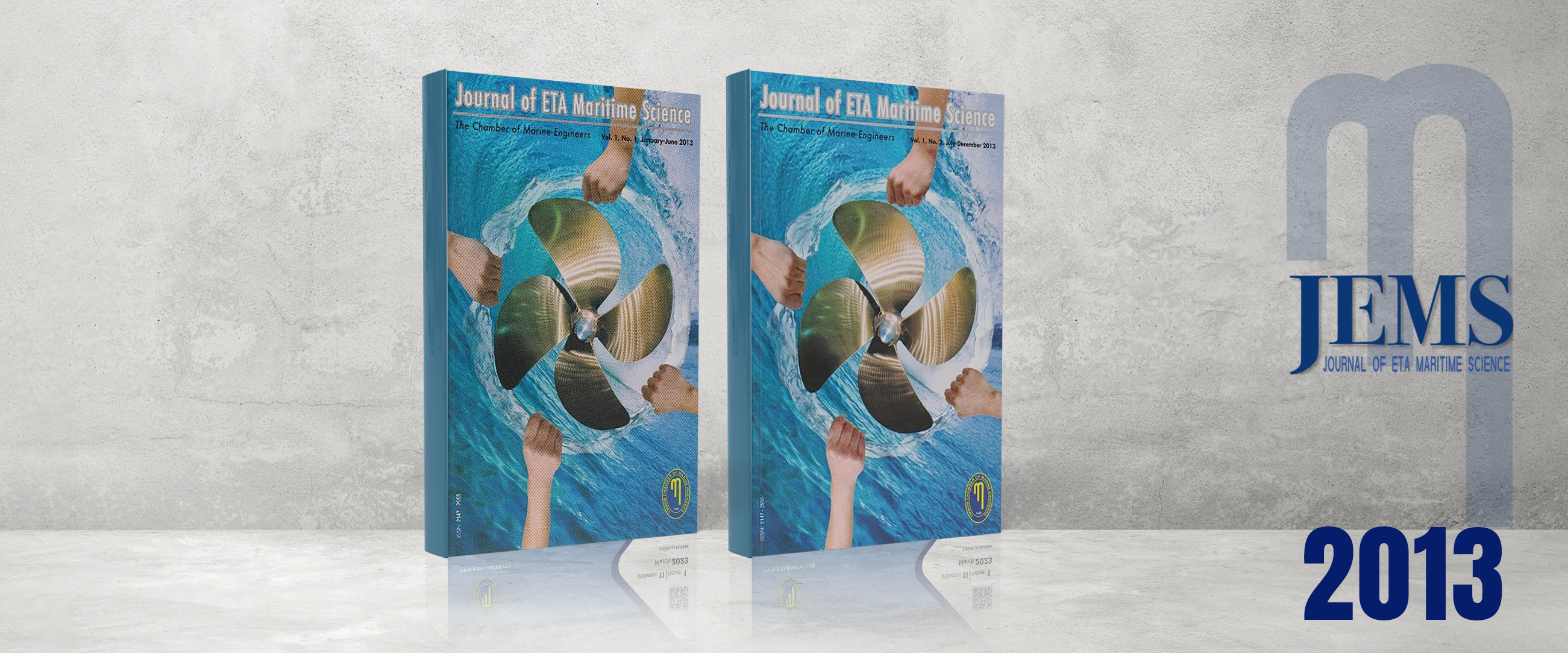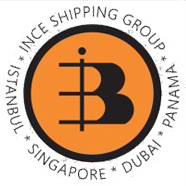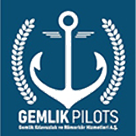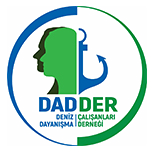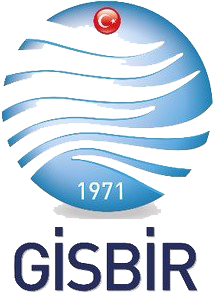

JEMS apply the Creative Commons Attribution NonCommercial 4.0 International Licence to all manuscripts to be published
About The Journal
Since 2020, JEMS has been published in English only
Aim:
Journal of Eta Maritime Science (JEMS) aims to encourage and publish research studies about the challenges and opportunities associated with considerable numbers of understandings in the maritime sector. Besides, JEMS also aims to reach out to relevant audiences by publishing the latest scientific and technological developments. JEMS journal, which is published periodically and regularly in March, June, September, December, may also publish special issues related to the selected topics.
Scope:
Scope of the journal covers national, international and local studies regarding Marine Engineering, Marine Transportation Engineering, Naval Architecture Engineering, Marine Operations, Logistics, Logistics Engineering, Maritime History, Coastal Engineering, Marine Pollution and Environment, Fishing and Fisheries Technology, Shipbuilding and Ocean Engineering.
JEMS is indexed in Web of Science Emerging Sources Citation Index (ESCI), Tubitak Ulakbim Science Database, Transport Research International Documentation (TRID), Index Copernicus International, Directory of Open Access Journals (DOAJ), EBSCO and J-Gate.
Journal History:
Journal of ETA Marine Sciences (JEMS), owned by the Chamber of Marine Engineers, started its publication life in 2013.
JEMS has been published by Galenos Publishing House since 2021.
Previous ISSN: 2147-2955
Publisher:
Galenos Publishing House
Publication Charges
There are no submission fees, publication fees or page charges for this journal.
JEMS Article Submission Policy:
- Submission of an article implies that the manuscript described has not been published previously in any journals or a conference paper with a DOI number.
- Submitted articles should be original research papers about any marine related matter.
- It will not be published elsewhere in English, in Turkish or in any other language, without the written consent of the copyright holder.
- Articles must be written in proper English.
- It is essential that the submission file be saved in the valid format of the template of the word processor used.
- References of information must be indicated.
- Source files of figures, tables and text graphics should be inserted in the system separately during the application process.
- To avoid unnecessary errors, you are strongly advised to use the "spell-check" and "grammar-check" functions of your word processor.
- JEMS operates the article evaluation process with a "double-blind" peer review policy. This means that the reviewers of the paper will not get to know the author's identity (s), and the author(s) will not get to know the reviewer's identity.
- Editor (s) will decide whether the submissions are eligible for publication in accordance with the reviewers' reports.
- Authors are obliged to comply with the JEMS Submission Policy.
- JEMS will be published quarterly.
- JEMS does not charge any article submission or processing charges.
- JEMSs peer review process is described as follows. The average time for the first loop of the review process is approximately 8 weeks, with a maximum of three months.
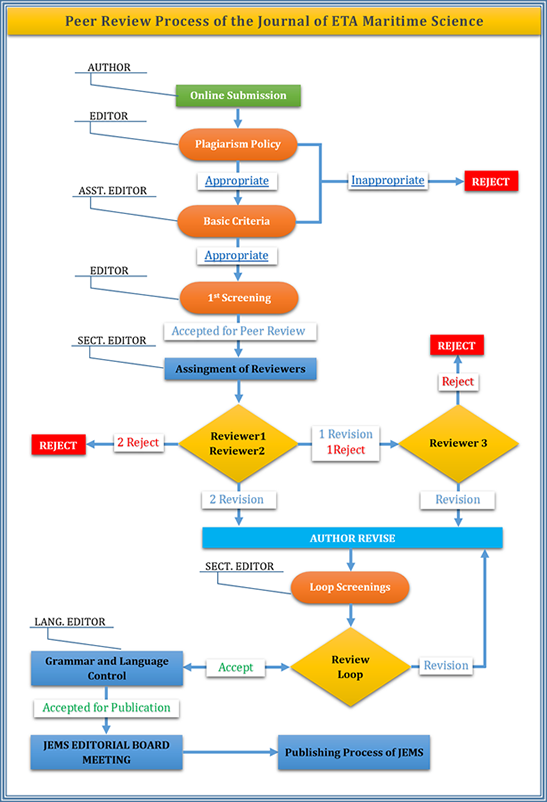
As part of its free access policy, JEMS which is a peer-reviewed journal, provides instant free access by adopting the principle that it will increase the global share of knowledge to
introduce scientific research to the public.
Plagiarism Policy
Plagiarism can take place in two forms:
- Author(s) deliberately copy someone else's work and claim it as their own work.
- Author(s) copy their own previously published material either in whole or in part without providing appropriate references called "self-plagiarism" or "duplicate publication."
Every manuscript submitted for publication to JEMS is checked for plagiarism after submission and before being sent to the reviewer for evaluation. "iThenticate" is used to detect instances of overlapping and similar text in the submitted manuscript.
ADVERTISEMENT POLICY
- All advertisements depend on the approval of the Publisher or Editor.
- Scientific content and decisions made by the editorial board have not been affected by advertising.
- Advertisements are separate from scientific content.
- Sales and marketing of the products within the accepted advertising are unfeasible.
- The editor or publisher of the journal is not responsible for the advertisement and its content. This responsibility entirely belongs to the owner of advertising.
- Accepted advertisements can be placed on any page approved by the editor or publisher.
- Advertising is done according to the contract between the advertising company and journal management.
- Advertising content has not included any distinction of language, religion, race, gender, age, disability, etc.
- Advertising that is contrary to society and publication ethics must not be published.
- Advertising produced according to national rules and fulfilling their obligations, such as licenses, are accepted for publishing.
- Advertisements must be prepared in accordance with competition laws and other relevant regulations.
- Journal management shall not be liable for pecuniary loss due to errors in the advertising content.
Open Access and CC Licence
JEMS is an open-access journal. The term open access gives the right of readers to read, download, distribute, copy, print, search, or link to the full texts of the articles free of charge. JEMS also signed (http://www.budapestopenaccessinitiative.org/list_signatures) Budapest Open Access Initiative (BOAI). According to BOAI (Budapest Open Access Initiative); By "open access" to peer-reviewed research literature, its free availability on the public internet, permitting any users to read, download, copy, distribute, print, search, or link to the full texts of these articles, crawl them for indexing, pass them as data to software, or use them for any other lawful purpose, without financial, legal, or technical barriers other than those inseparable from gaining access to the internet itself. The author(s) and the copyright holder(s) grant(s) to all users free access to articles. Authors retain copyright and grant the journal right of first publication with the work simultaneously licensed under a Creative Commons Attribution License that allows others to share the work to acknowledge the work's authorship and initial publication in this journal. JEMS apply the Creative Commons Attribution-NonCommercial 4.0 International Licence (CC BY-NC 4.0) to all manuscripts to be published.
Digital Archiving And Preservation Policy
Digital preservation is a set of processes and activities that ensure the retrieval and distribution of information now available in digital formats to guarantee long-term, perpetual access. The preservation policy includes the following measures:
Website archiving
All of the electronic content (website, manuscript, etc.) is stored in three different sources. Content on a server is online and accessible to readers. A copy of the same content is preserved as a backup on two other sources. Should a server fail, other resources can be brought online, and the website is expected to be available in 24-36 hours.
Abstracting/Indexing services
Our journal's Abstracting/Indexing services store essential information about articles. In addition, some of our journals’ Abstracting/Indexing services archive metadata about the article and electronic versions of the articles.In this way, copies of articles are presented to the scientific community through these systems as an alternative to journals.
Cessation of publication
If a journal must stop publishing, the articles will remain online and accessible to readers through third parties and archiving processes such as those described above. Content can be accessed through PORTICO when required under certain circumstances, such as when the collection is stopped.
